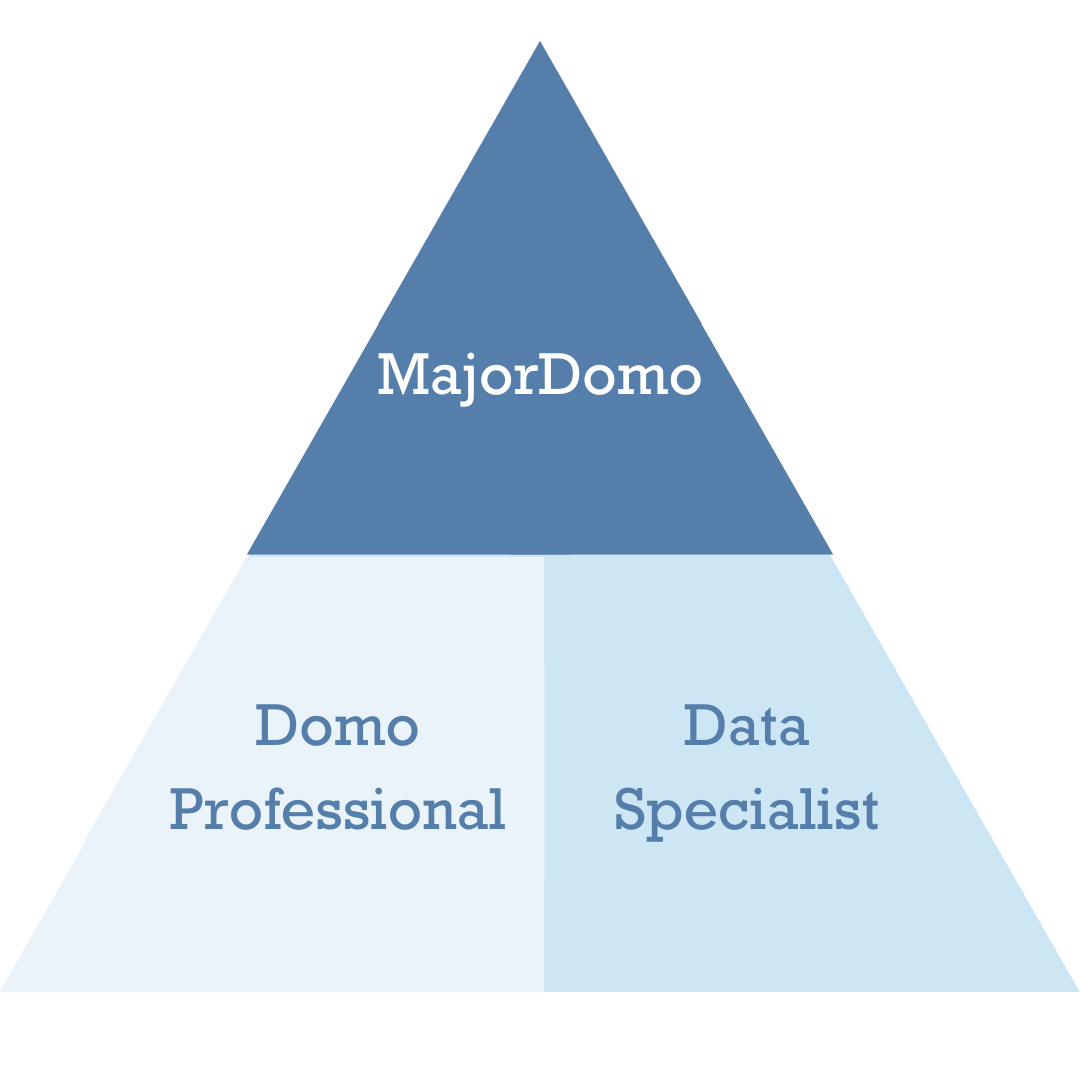I recently had the opportunity to complete the MajorDomo Certification course. It was an incredible experience that deepened my confidence and skill in leveraging all that Domo has to offer. The course strikes a perfect balance between challenge and reward, making it an excellent choice for intermediate to advanced Domo users ready to elevate their expertise. After completing the course, you’ll feel empowered to use Domo effectively across scenarios within your organization and equipped to train others to do the same. In this post, I’ll share my experiences and insights to help others considering the course understand what to expect and how it can benefit their Domo journey.
MajorDomo Course Overview
The MajorDomo Certification course includes three sub-courses: Domo Professional, Data Specialist, and MajorDomo. Each sub-course contains three parts: coursework, a knowledge test, and a practical application test.

The coursework portion contains lessons packed with hands-on activities and practice quizzes, allowing you to actively engage with the material and solidify your understanding before moving on to the exams.
The knowledge tests are multiple-choice and consist of around 50 questions (with 25 questions for the MajorDomo knowledge test). These tests are non-cumulative, focusing only on the material in each specific section. You’ll need a score of 80% or higher to pass, and you’re allowed two attempts.
The practical application tests require you to complete a series of tasks within Domo based on the section’s lessons. You’ll submit screenshots of your completed tasks in a zip folder for review by a Domo employee. The review process can take between one to three weeks. However, in my experience, it took about five to ten days.
The course is priced at $599. While this investment may seem steep, it reflects both the breadth of information covered and the value of the certification itself.
Domo Professional Sub-Course
The Domo Professional sub-course is an excellent introduction to the platform, covering foundational concepts and expanding on several topics also featured in the Domo Student Training course. (See my recap of the Domo Student Training course here.) If you’ve already completed those lessons, you won’t need to repeat them.
Topics covered include Domo basics, data interactions, card building, Domo Stories, alerts, and card governance, with a primary focus on card building and gaining a solid understanding of the platform’s core features.
The knowledge test for this section contains 51 questions based on the course material. For the practical application test, you’ll be required to build cards that answer various business questions and then arrange these cards into a dashboard. Paying close attention to Domo’s best practices for card building is crucial, as the cards you create must align with these standards to pass.
Data Specialist Sub-Course
While the Domo Professional sub-course emphasizes data visualization, the Data Specialist sub-course focuses on data transformation. This course covers various ways to connect and transform data within Domo. It is beneficial to have a basic understanding of SQL, as many of the practical application projects require its use. The course provides detailed instruction on DataSet Views, Magic ETL, Beast Mode, MySQL DataFlows, and Workbench. Additionally, it expands on data governance, building on the card governance covered in the Domo Professional sub-course.
The knowledge test for this section is similar to the Domo Professional test, with 51 multiple-choice questions. For the practical application test, you’ll demonstrate your proficiency with the tools introduced in the lessons. You’ll be provided with several datasets and tasked with importing data into the platform through Workbench (which you’ll need to download if you haven’t already) or other methods. You’ll then be asked to perform a series of transformations using the skills you’ve learned.
MajorDomo Sub-Course
Ironically, the MajorDomo sub-course is the shortest of the three sub-courses within the MajorDomo Certification course. It focuses on implementing Domo effectively within an organization, covering the various Domo roles, their purposes, and best practices for managing users within your company’s Domo instance. The course also includes training on CourseBuilder, a tool that allows you to develop Domo training modules, along with guidance for effectively training teams to maximize their use of the platform.
The MajorDomo knowledge test is the briefest, with only 25 multiple-choice questions. For the practical application test, you’ll need admin access within your Domo instance to complete tasks involving the platform’s admin settings. You’ll create a certification process for cards, set up a custom role, and use the DomoStats connector to gain insights into your organization’s Domo usage patterns.
Helpful Tips
My top recommendation is to take thorough notes throughout the lessons and review those notes prior to taking the exams. If you fail both attempts at any of the knowledge tests, you’ll need to pay for a third attempt. While the tests aren’t particularly difficult, they do cover the material extensively, so a strong understanding of the platform is essential.
After each attempt, you’ll be able to review your answers, whether you pass or fail. The test also provides a breakdown of the categories covered and your accuracy in each, which is incredibly helpful for identifying areas to focus on if a retake is needed.
For the practical application tests, take extra care to treat each project as if it were for a client or your business. This approach ensures your final product is your best work. I also recommend pacing yourself through this process. With a potential three-week grading period, it’s worth taking the time to review your work thoroughly before submitting. You might also find it beneficial to wait a day between creating and submitting your project; reviewing with fresh eyes can help you spot errors you may have missed.
After completing the MajorDomo Certification course, you’ll receive your MajorDomo Certification. To keep that active, you’ll need to complete a recertification course every two years. This course will focus on any new features added to Domo since your initial certification, helping you stay current and maintain your expert status.
Conclusion
The MajorDomo Certification course is an excellent opportunity for anyone looking to advance their skills in Domo. Though it can be challenging, the experience is incredibly rewarding. By the end of the course, you’ll feel confident in your ability to leverage Domo’s full range of capabilities across any scenario.
Interested in taking the next step in your Domo training? Enroll in the MajorDomo Certification course today, or check out some of our other favorite courses in Domo University.
Need more expert Domo guidance? Let us help. Explore our Domo consulting services.

